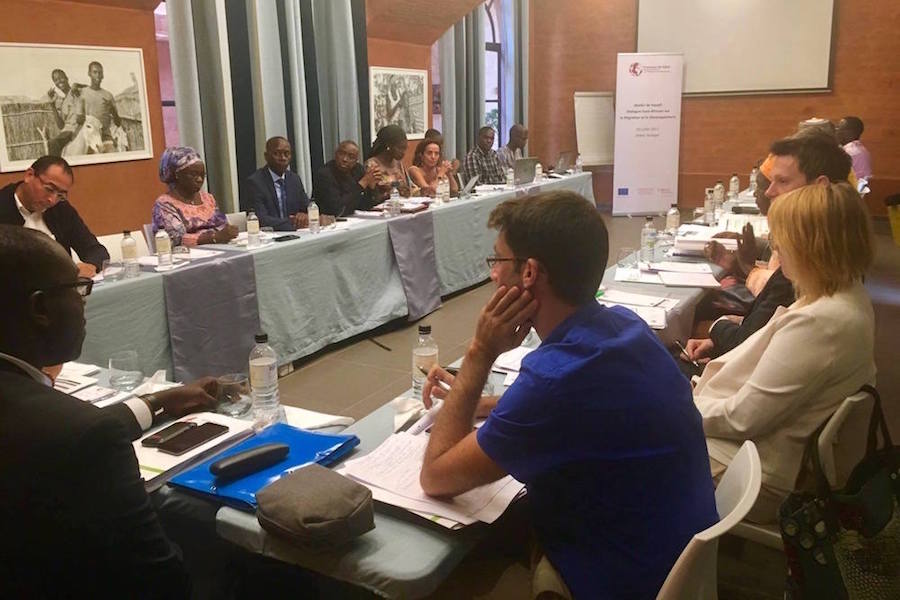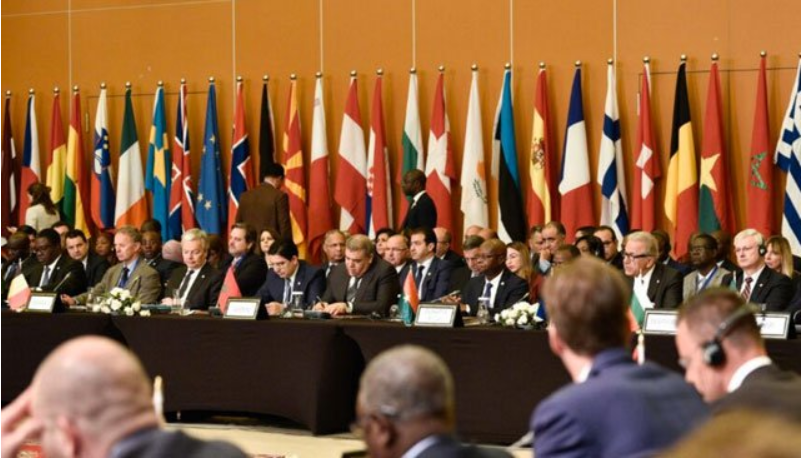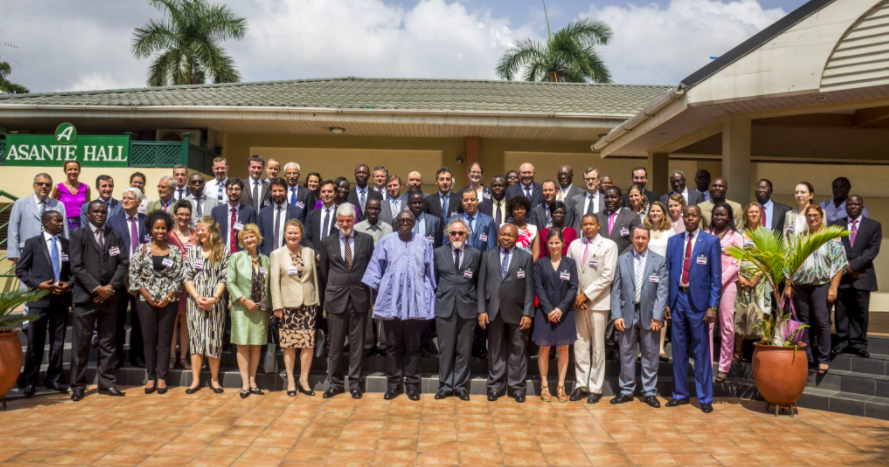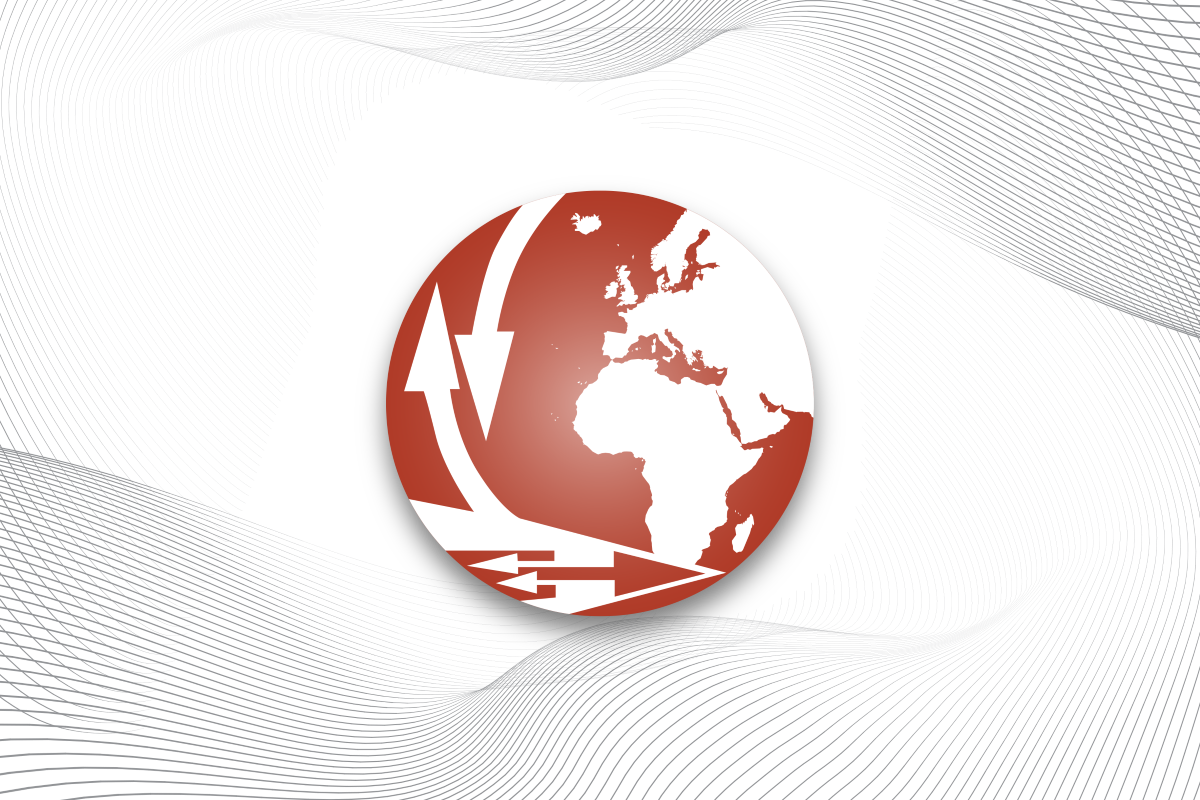As the implementation period of the Rome Programme draws to a close, a wide consultation process was launched to develop the new multi-annual programme for the dialogue 2018-2020. Upon Belgium’s initiative as soon-to-be Chair and with support from the Steering Committee, the traditional consultation process was extended this year to include representatives of European and African civil society, international organisations, members of the diaspora and academics in an informal or “parallel” consultation process. This informal consultation process comprised two phases, gathering different groups of external observers. Firstly, the Rabat four thematic roundtables in Brussels in April, followed by a workshop with mainly African participants in July, in Dakar.
African youth and women as agents for change
The roundtables in Brussels focused on the main thematic pillars of the dialogue as outlined in the Rome Programme, namely migration and development, legal migration and mobility, the fight against trafficking in human beings and international protection. Each of the four roundtables involved different stakeholders, specialising in the respective area. This series of meetings resulted in a number of recommendations. For example, many actors emphasised the need to further take into account the intra-African dimension. With regards to remittances, for example, it is important to reduce the cost of transfers from Europe to Africa but also within Africa itself. Another point which emerged from the roundtables was the importance of investing in African youth and women as drivers for and agents for change. Another key observation was that the different causes and consequences of trafficking in human beings and migrant smuggling require two sets of technical responses to tackle adequately to these different phenomena and to provide relevant and adequate support to victims.
Voices from the field
Together with African experts, the informal workshop held in Dakar workshop provided a space for discussions and reflection, thereby contributing to guarantee that the voices of actors on the ground are heard. Key recommendations that arose from the meeting included the fundamental role of research in order ensure that political decision making is based on proven facts; and the importance of the local dimension and collaboration with local authorities, especially with regard to the development and implementation of migration and development policies. Another point stressed out was the need to increase capacity building in the area of judicial and law enforcement.
Several NGOs from Senegal, Mali, and Morocco participated in this activity. The Secretariat selected the participants best qualified to represent civil society organizations, universities and international organizations, respecting the geographical and thematic balance between the different countries of the Rabat Process. Selection criteria varied between: level of technical expertise, level of engagement with citizens and prior existence of coordination with the partners of the Rabat Process.
Exchanging alternative perspectives on migration
Representatives of civil society organisations, international organisations, and academics reported that they were glad to have had the opportunity to participate in these consultations, which provided an opportunity to exchange views on current and future issues related to Euro-African migration and mobility. The outcomes of this consultation process were used to stimulate reflection and provided alternative perspectives on migration, which are being taken into account during the ongoing drafting process, aimed ultimately at developing the programme which will guide the Rabat Process from 2018 onwards. The opportunity for these informal consultations not only helped to enrich the dialogue but also to ensure that the Rabat Process continues to remain a dynamic and relevant dialogue, with a strong commitment to being operational.






